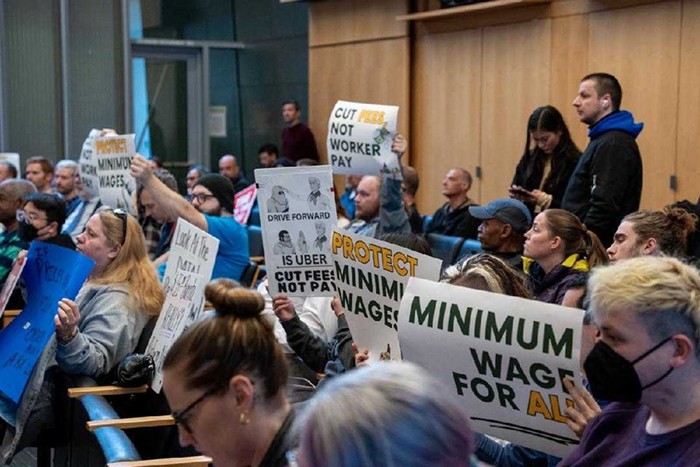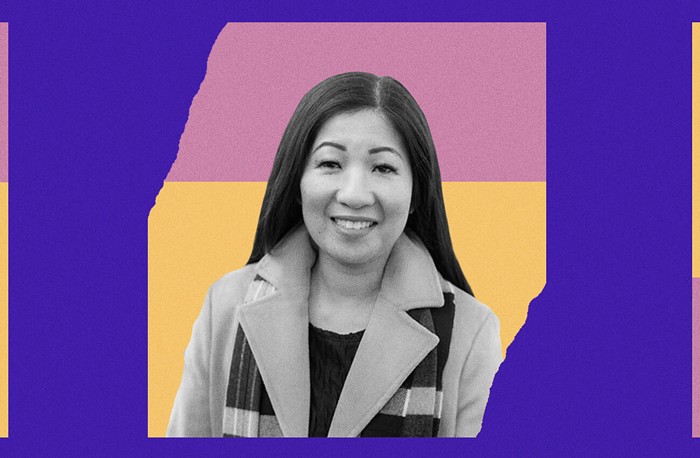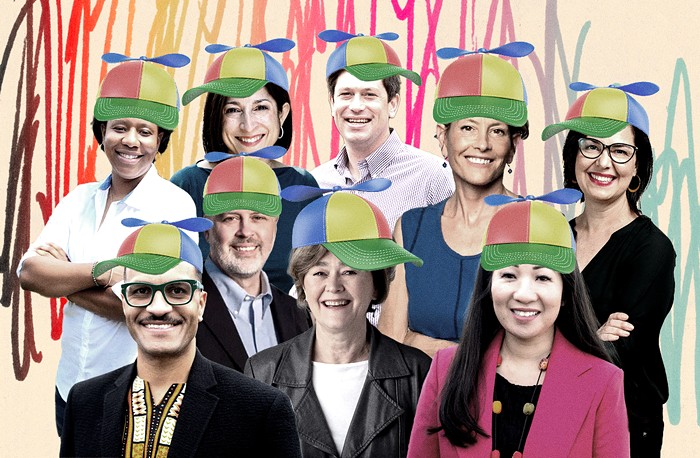
This Seattle City Council election, which ended on Tuesday, is still happening as ballots drop and results change. There are two more ballot drops today and more to come next week. Whatever happens in those other races (eyes on you, District 3), one thing is certain, Tammy Morales will be the next person to represent District 2 on the Seattle City Council.
With today's King County tabulation, it has become apparent that our campaign will not be successful. I want to congratulate Tammy Morales on her hard-fought win. While I may not be your next councilmember, I will still be here, working every day for the betterment of our city.
— Friends of Mark Solomon (@VoteMarkSolomon) November 7, 2019
Morales, a long-time policy and budget analyst and community organizer from Rainier Beach, swept the floor with Mark Solomon, a crime-prevention coordinator with the Seattle Police Department. Their race is currently 58.3 percent to 41.7 percent, and Solomon conceded on Wednesday over Twitter.
Before the August primary, Mayor Jenny Durkan sent out an email announcing her endorsement of Solomon. In it, she disparaged Morales, calling her a socialist (she isn't a socialist) and comparing her to conservative fear-monger Ari Hoffman, the failed D2 candidate and forever bouncy house tycoon. In that primary election, Morales won 50 percent of the vote against six other candidates.
After winning the general election, Morales will have to act on her vast policy platform. What comes first?
Get Resources to the South End and Guide Growth
"City hall has been pretty inaccessible to folks in the South End," Morales told The Stranger, "and I think the real priority for the district is bringing resources down here."
The South End is one of the most rapidly gentrifying regions of Seattle. Gene Balk in the Seattle Times reported that, for the first time, white people make up the largest racial group in South Seattle. Reagan Jackson in the South Seattle Emerald has called Rainier Beach "Gentrification Ground Zero" because of how the neighborhood around her is no longer recognizable—more expensive, more white.
The South End will keep developing, especially around light rail stations from Beacon Hill to Rainier Beach, neighborhoods that are part of those 27 neighborhoods city-wide that will be upzoned.
Morales plans to tackle these issues through securing land for affordable housing, by making room for community organizations, and expanding childcare facilities.
First: A Community Development Authority
Morales wants to set up a quasi-government authority that's responsible for acquiring land and putting it in a neighborhood land trust. It would be like the King County Housing Authority, but for taking land out of the speculative real-estate market and keeping it for permanently affordable housing.
Next: Childcare Facilities
In 2015, the Washington state Legislature designated some extra funds ($314 million across 15 years) for education to King County. Those funds—known as "pasta" but actually as the Puget Sound Taxpayer Accountability Account (PSTAA [pasta])—went into effect starting this year. Morales intends to guide its implementation, especially as it pertains to the "dearth of childcare facilities in the city and especially in the South End."
"That will be the responsibility of the council to help implement," Morales said. "I want to make sure that gets done well and we tie it to the Equitable Development Initiative and make sure all those dots are connected."
And Then: the Equitable Development Initiative (EDI)
This ties back around to development and sort of ties all three of these plans together.
The EDI is a fund that was created by South End organizations in 2016 to facilitate community-driven development projects. What does that mean? Pretty much, as Morales sees it, helping small businesses afford retail spaces in new developments.
Housing in these developments can get monetary help from the Office of Housing. However, there's no mechanism for helping finance groundfloor retail. "What happens in the South End a lot is that those [spaces] sit vacant," Morales said.
But, the EDI only has about $5 million to spend on current projects.
"That’s not a lot of money especially when you consider it’s being spread around to the city," Morales said. "Especially in the South End, it sets up this dynamic where already struggling organizations are pitted against each other for sparse resources."
When Morales gets into office, she wants to make sure there's a dedicated source of revenue for it and that "we are funding it fully so that all these community projects that have been identified actually get the money," Morales said.
Who Are Her Allies?
No matter what happens with these remaining votes, the Seattle City Council will have a progressive majority. That was true immediately after election night results dropped on Tuesday and it holds true now. Amazon lost its $1.5 million gamble and the Chamber of Commerce-backed candidates are barely keeping their heads above the onslaught of progressive-leaning votes crashing in with each new ballot drop. It's become a "How Progressive Can We Get?" game of chicken.
"I don’t think it was a good night for the chamber, honestly," Morales said.
Morales will be one of the most progressive elected council members (she'll arguably be the most left-leaning if Kshama Sawant doesn't pull through her District 3 race). The council is stocked with allies for Morales, but she's already forged a relationship with Council Member Teresa Mosqueda. The two have been talking a lot, she said. She also says she's excited to work with (soon-to-be newly re-elected) Council Member Lisa Herbold on land issues.
"I think we have a council that is backed by labor, backed by people who want progressive voices on the council who are willing to fight for working families in the city," Morales said. "Despite the millions of dollars, I think what I took away from the election is that the people of our city reject that divisiveness and cynicism."
There will be two more ballot drops on Friday, one around 4 p.m. and another around 8:30 p.m. There will be more continuing into next week.
Correction: An earlier version of this story misspelled "dearth." Sorry.



















